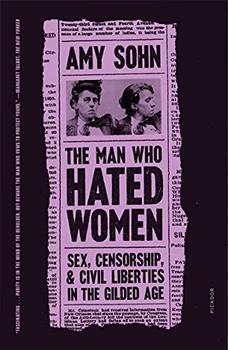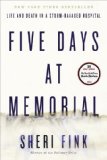Summary | Excerpt | Reviews | Beyond the book | Read-Alikes | Genres & Themes | Author Bio

A Story of Sex, Jazz, Murder, and the Battle for Modern New Orleans
by Gary KristThe best historians are time travelers. With spectacular use of research, they take us on a journey to there – a time and place that is different from here – so that we may come as close as we can to experiencing what happened there and why.
Gary Krist, author of Empire of Sin, is one of those time travelers, and his destination is the political history of the late 19th century - early 20th century New Orleans. He takes us to ax murders; to point-blank shootings in brothels and in the streets; and to proclaimed dens of sin where jazz is thought to be dangerous. He also takes us to the crusade of lily-white reformers in positions of political power. They not only sought Victorian-era respectability for their city, but wanted people of different races than theirs to stay far away from their vision.
The center of Empire of Sin is Storyville, created for the essential purpose of removing drinking and prostitution from "respectable" New Orleans and placing them in their own district. It's here that Krist shows himself to be, again, the multi-faceted historian he was in his previous books - City of Scoundrels, about the tumultuous birth of Chicago; and The White Cascade, about the 1910 railroad disaster in the Northwest. Krist exposes us to many sections of New Orleans, and by simply reporting on the happenings in each, he gracefully points out their differences and illuminates how they were sometimes woven together. All the while, he sticks entirely to the historical record – without deviation, and without speculation.
Krist deftly explores Storyville, and his use of detail is precise and evocative; this book could also become an HBO series like Boardwalk Empire. It's easy to imagine the Annex on TV – the immense and opulent bar owned by the unofficial Storyville mayor Tom Anderson –as well as what the fashions would look like, and the music would sound like. While we read about Anderson's monumental success in Storyville, and the fights on both sides to alternately bring perceived respectability to New Orleans and to keep it as is, Krist quietly introduces his version of lagniappe – or a little extra in Louisianan terms.
There's the introduction of Louis Armstrong to the world, for example, who was inspired by listening to Buddy Bolden, the father of jazz. There's also Mary Deubler, going by Josie Lobrano and Josie Arlington, who had to make sure her beloved niece didn't find out that she was the madam of a brothel in Storyville. The lengths to which she went to keep her niece from finding out are amusing, but sad as well, because where could Josie find the time to simply appreciate her niece with all that effort expended to cover her tracks? The eventual revelation is bittersweet. These bits of lagniappe make the book come alive.
Empire of Sin is a swift, breathtaking read that adds more depth to the history of early New Orleans for those already familiar with it, and tidal waves of emotion for whom it is new. It's jarring to learn that after the Civil War, during the early 1870s Reconstruction, schools were desegregated, interracial marriage was fine, and blacks and whites lived side by side in the same neighborhoods. Then came the end of Reconstruction and white reformers wanted things their way. Much of the New Orleans profiled here is like that, where you can't believe what you're reading, and you're interested to see how it plays out, even hoping the smallest hope that it might be able to get back to what it once was.
Krist takes us there, but of course, we must eventually return here. It is a spectacular journey though, and we're richer for the experience.
![]() This review was originally published in The BookBrowse Review in November 2014, and has been updated for the
July 2015 edition.
Click here to go to this issue.
This review was originally published in The BookBrowse Review in November 2014, and has been updated for the
July 2015 edition.
Click here to go to this issue.

If you liked Empire of Sin, try these:

by Amy Sohn
Published 2022
The New York Times–bestselling author Amy Sohn presents a narrative history of Anthony Comstock, anti-vice activist and U.S. Postal Inspector, and the remarkable women who opposed his war on women's rights at the turn of the twentieth century.

by Sheri Fink
Published 2016
Pulitzer Prize winner Sheri Fink's landmark investigation of patient deaths at a New Orleans hospital ravaged by Hurricane Katrina and suspense-filled portrayal of the quest for truth and justice.
Your guide toexceptional books
BookBrowse seeks out and recommends the best in contemporary fiction and nonfiction—books that not only engage and entertain but also deepen our understanding of ourselves and the world around us.